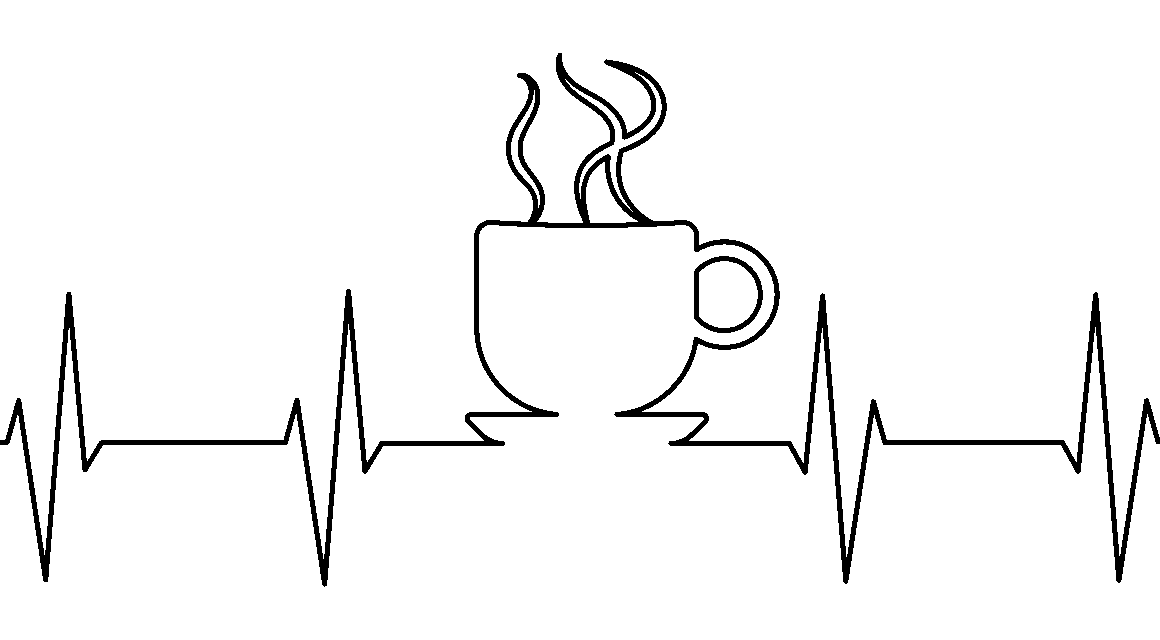How Long Does Caffeine Affect Your Sleep? Timing Matters
Caffeine is a well-known stimulant found in coffee, tea, chocolate, and various soft drinks. Many people consume it to enhance alertness and concentration. However, its effects can vary significantly, especially concerning sleep. Understanding how caffeine impacts sleep requires examining its duration and timing. The half-life of caffeine ranges from three to seven hours, meaning that for most individuals, the body takes a considerable time to eliminate half the substance. Consequently, consuming caffeine close to bedtime can disrupt sleep patterns and reduce the ability to fall asleep. Studies show that even moderate caffeine consumption during the late afternoon or early evening can affect sleep quality and duration. In particular, individuals may experience increased difficulty in falling asleep or varying stages of sleep irregularities. Furthermore, caffeine has the potential to decrease overall sleep time, which can lead to chronic sleep deprivation over time. This can have detrimental effects on mood, cognitive performance, and overall health. Thus, understanding caffeine’s timing and its impact on sleep can help individuals make more informed choices for better sleep and recovery.
The Mechanism of Caffeine’s Action
The interaction of caffeine with the body involves complex biochemical processes. Primarily, caffeine blocks adenosine receptors in the brain, reducing feelings of fatigue and promoting wakefulness. Adenosine is a neurotransmitter that promotes sleep, thus caffeine enhances alertness by inhibiting its effects. When caffeine is consumed, the enhancement of neural activity can lead to increased heart rate and blood pressure, making users feel more energized. However, as the stimulant wears off, the blockage of adenosine wears off too, potentially leading to a sudden drop in energy levels. This crash can compel individuals to consume additional caffeine, creating a cycle of dependency that impairs natural sleep patterns. Moreover, the insufficiently metabolized caffeine may linger in the body, disrupting sleep even after consumption. This makes understanding caffeine’s metabolic duration crucial for those seeking restorative sleep. Taking caffeine in moderation and at appropriate times is vital for minimizing its adverse effects on sleep quality. Notably, caffeine sensitivity varies among individuals; some may metabolize it quickly, while others may find it impacts their sleep even when consumed early. Thus, personal awareness is essential.
Caffeine affects various individuals differently, particularly relating to sleep. Some people can drink coffee late into the evening without adverse effects, while others may find even a small amount late in the day significantly disrupts their sleep cycle. This variability is due to genetic differences in caffeine metabolism. The CYP1A2 gene plays a major role in determining how quickly your body breaks down caffeine. Fast metabolizers can process caffeine more efficiently, resulting in fewer sleep disruptions. Conversely, slow metabolizers may experience prolonged effects of caffeine, affecting their ability to achieve restful sleep. For those individuals, limiting caffeine intake becomes essential to enhance sleep quality. Research indicates chronic sleep deprivation can lead to severe consequences, such as irritability, lack of focus, and impaired cognitive function. Tracking personal responses to caffeine consumption can help individuals determine their optimal cut-off time for intake. Maintaining a sleep diary might aid in identifying patterns related to caffeine consumption and overall sleep quality. By understanding personal limits, changes can be made in diet to support improved sleep. Overall, personal variations highlight the importance of individualized caffeine management.
Recommendations for Caffeine Consumption
To optimize sleep while enjoying caffeine, timing is paramount. Experts generally recommend avoiding caffeine consumption at least six hours before bedtime. This guideline helps ensure that caffeine levels in the bloodstream are low enough not to interfere with sleep onset. However, individuals should consider their unique tolerance levels and sleeping requirements. For instance, if one routinely experiences sleep problems, a longer gap—up to eight hours—between caffeine intake and sleep onset may be prudent. Additionally, opting for caffeine-free alternatives, such as herbal teas or decaffeinated coffee, during the evening can provide a comforting ritual without compromising sleep. It’s also beneficial to limit caffeine intake to morning hours where its stimulating effects can help with alertness during the day. Gradually reducing caffeine consumption can aid in minimizing withdrawal symptoms, which may include headaches or fatigue. It is essential for individuals to listen to their bodies and adjust their habits accordingly. Maintaining a consistent sleep schedule, along with mindful caffeine consumption, can foster better overall sleep health. Thus, a well-considered approach to caffeine can significantly enhance sleep recovery and overall well-being.
Crucially, the relationship between caffeine and sleep does not only involve the timing of consumption but also the amount of caffeine consumed. Many people are unaware of how much caffeine is in their daily drinks, especially energy drinks or certain teas. A typical 8-ounce cup of coffee can contain anywhere from 95 to 200 milligrams of caffeine, while some teas contain about 30 to 50 milligrams. Energy drinks can significantly exceed these amounts, often exceeding 300 milligrams per serving. Understanding these numbers is essential for managing caffeine intake effectively. Furthermore, the cumulative effect of multiple caffeine sources throughout the day can lead to bothersome sleep disturbances. It might be prudent to track total daily caffeine consumption to gauge its impact on sleep. There are various online tools and apps that can aid in this tracking process. This conscious monitoring can lead to healthier habits and promote more restful sleep. Additionally, individuals should consider replacing high-caffeine beverages with lower-caffeine alternatives, which can reduce overall intake without sacrificing enjoyment. Awareness of total caffeine may lead to better sleep management.
Long-term Impacts of Regular Caffeine Consumption
Beyond immediate effects on sleep, long-term caffeine consumption can have other health implications, especially concerning sleep patterns. Regularly consuming high doses of caffeine can lead to chronic sleep deprivation and its associated health risks. Sleep deprivation is linked to multiple health issues, including cardiovascular disease, reduced immune function, and even psychological disorders. As the body increasingly struggles to cope with the effects of caffeine, sleep disturbances may intensify over time, leading to a vicious cycle of reliance on stimulants to combat daytime fatigue. Furthermore, studies suggest that excessive caffeine can lead to increased anxiety and stress, which can further impair sleep quality. Therefore, it is beneficial for caffeine consumers to be aware of their intake levels and to seek ways to manage consumption thoughtfully. Establishing a balanced approach to caffeine can support overall well-being and more restful sleep. It is important to note that moderation, as well as awareness, plays a key role. Decreasing caffeine intake gradually may help limit withdrawal effects while simultaneously encouraging better sleep habits and improving recovery.
In conclusion, the relationship between caffeine and sleep quality is complex and multifaceted. Understanding how caffeine affects your sleep requires awareness of not only the quantity consumed but also the timing of consumption. Caffeine can provide temporary benefits in terms of alertness but at the cost of potential sleep disruptions if not managed appropriately. With personal variations in caffeine metabolism, it’s essential for individuals to adjust their habits to optimize sleep patterns. Exploring alternatives and being mindful of caffeine sources can help maintain a healthy balance. Ultimately, fostering an understanding of caffeine’s effects on sleep can lead to healthier choices, ensuring that individuals enjoy its benefits without sacrificing their recovery and overall well-being. Making small adjustments can create substantial improvements in sleep quality over time. By being proactive and mindful about caffeine consumption, individuals can enjoy its stimulating effects while still prioritizing their sleep needs. This pivotal balance is key for enhancing sleep and promoting better recovery. By incorporating these strategies into daily routines, more fulfilling sleep patterns can be achieved.
This concludes the discussion surrounding caffeine and its impact on sleep health. By evaluating personal habits and modifying caffeine intake accordingly, individuals can foster a more restorative sleep environment. Research continues to evolve in this area, emphasizing the importance of individual variability and personal preferences. With each passing day, new findings emerge that enhance our understanding. It is crucial to remain informed about the effects of caffeine on our bodies and to develop healthy habits that support optimal sleep recovery. By applying these insights into daily life, one can create an environment conducive to better sleep and overall health. The effects of lifestyle choices reach far beyond immediate impacts, with long-term implications for well-being. Committing to understanding and managing caffeine intake can yield significant benefits for sleep quality. In summary, remain aware of not just when but how much caffeine is consumed to support better sleep patterns. Through a balanced approach towards caffeine consumption, individuals can ensure they are prioritizing their sleep recovery and overall health effectively. Future studies will undoubtedly shed more light on this dynamic relationship, yielding insights and strategies to further enhance sleep health.


